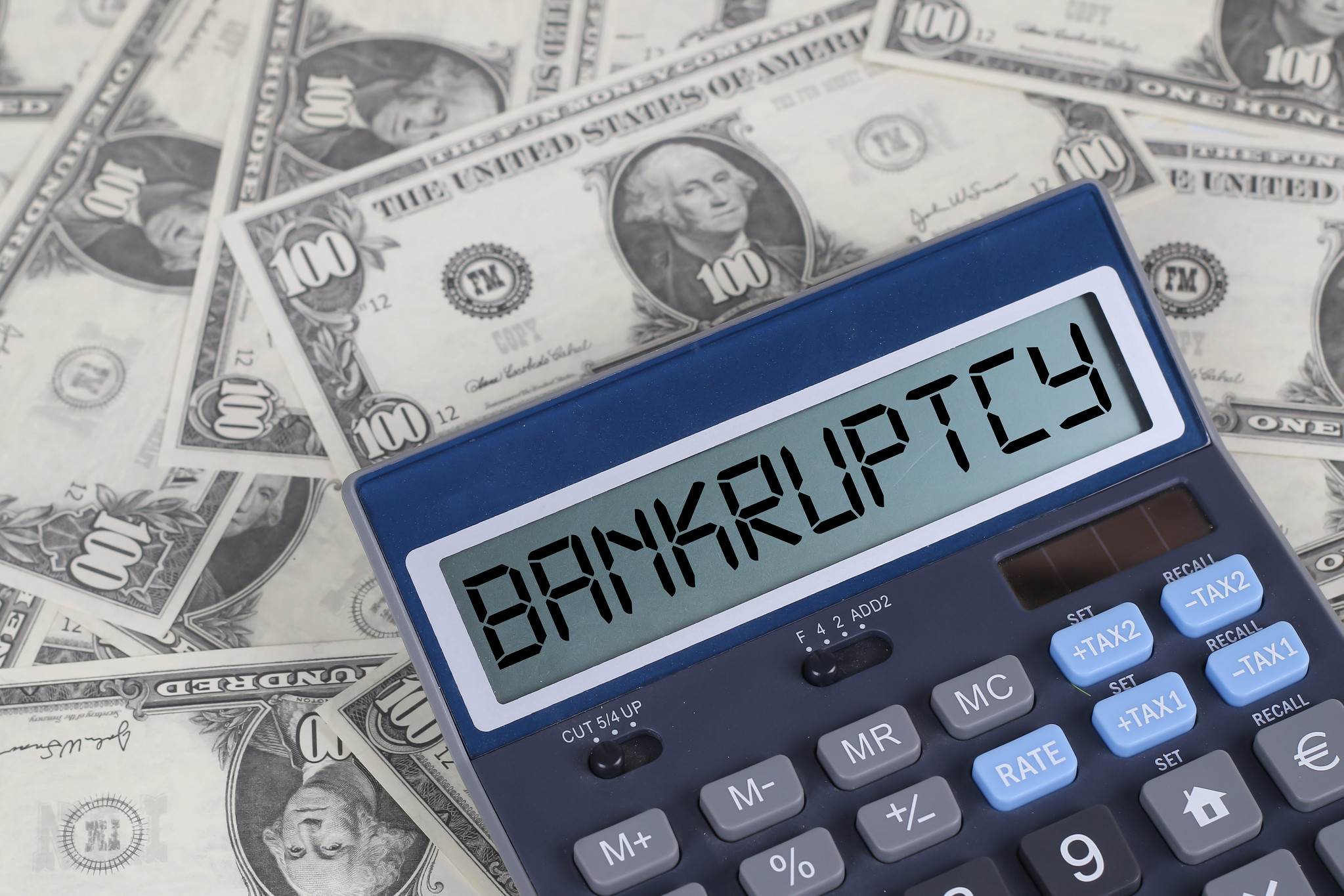Bankruptcy exemptions are the tools to protect property from creditors and as well as the court in a bankruptcy proceeding.
Filing Chapter 13 bankruptcy in Massachusetts can help you keep your home and other property while getting rid of debts you cannot pay. However, filing bankruptcy is a serious decision. A typical Chapter 13 case can take a little over five years to complete. That said, if you are facing wage garnishment in Massachusetts, a Chapter 13 may provide more breathing room.
Before you decide to file for bankruptcy relief, let’s learn more about Chapter 13.
The goal of this article is to provide information about a Chapter 13 Bankruptcy in Massachusetts. We will explain the differences to filing bankruptcy in Massachusetts, but it may be helpful to learn about the costs to filing bankruptcy in Massachusetts as well.
- Chapter 7 vs. Chapter 13 Bankruptcy in Massachusetts
- Calculating Chapter 13 Plan Payments in Massachusetts
- Means Testing in Massachusetts
- Massachusetts Credit Counseling and Debtor Education Courses
- Massachusetts Bankruptcy Exemptions
- Bankruptcy Courts and Trustees for Massachusetts
- Also alternatives to Filing Bankruptcy in Massachusetts
Massachusetts Chapter 7 vs. Chapter 13 Bankruptcy
Most individuals who are filing bankruptcy in Massachusetts file a Chapter 7 or Chapter 13 case.
Chapter 7 bankruptcy in Massachusetts can be used to get out of debt in about four to six months. However, the Chapter 7 process is not always quick and easy. Also, you must meet the income requirements to qualify for debt forgiveness (bankruptcy discharge) under Chapter 7. Finally, if you have substantial equity in your property, you could risk losing some property in a bankruptcy auction.
Some individuals are more suited to filing for bankruptcy relief under Chapter 13 bankruptcy in Massachusetts. Chapter 13 bankruptcy cases give debtors (the person filing for bankruptcy relief) the opportunity to reorganize their debts. Through the Chapter 13 process, you can pay what you can afford to pay toward your unsecured debts. So general unsecured debts include medical bills, personal loans, most judgments, credit card bills, and other debts that are not secured by collateral.
You can catch up on past due mortgage payments to avoid foreclosure and might qualify to lower your car payments. If you owe old back child support or alimony, you can also take care of that in a Chapter 13 bankruptcy case. Tax debts also receive payment in full through your Chapter 13 plan, but you have up to five years to pay back taxes.
Chapter 7 Means Testing in Massachusetts
The completion of a bankruptcy means test is a requirement when you file your bankruptcy forms. Your Chapter 13 case will use several important figures from this bankruptcy form.
Your Current Monthly Income (CMI)
Current monthly income determines your median income. CMI is based on an average of your household income for the six months before filing a bankruptcy case. To calculate your current monthly income, add all income received during the six months before the month you intend to file your Chapter 13 petition and divide the sum by six.
Household income includes for instance all wages, salaries, and other income, except for income received under the Social Security Act, including SSI and SSDI. Also, most payments to crime victims are not included in CMI. If your spouse is not filing for bankruptcy relief, you must still include your spouse’s income when calculating CMI. Retirement income and pensions are also included in CMI.
Multiply your CMI by 12 to calculate your median income. Median income determines if you must file a five-year Chapter 13 plan. So if your median income exceeds the Massachusetts median income for a household matching the size of your household, your Chapter 13 plan must be a five-year plan.
Though if the median income is below the state median income level, you may qualify for a three-year Chapter 13 plan. Although, you can choose to file a five-year plan to lower the monthly payments.
Median income levels adjust every few months based on updated information from the Internal Revenue Service and the Census Bureau. You can view the current median income figures of Massachusetts households below for cases filed on or after May 15, 2022.
Calculating Chapter 13 Plan Payments in Massachusetts
Your Chapter 13 plan payment is based on your disposable income, debts, assets, and financial affairs. When calculating a Chapter 13 repayment plan, you must consider some debts separately. For example, your mortgage arrearage (past due mortgage payments) and your car loan are generally paid in full through the Chapter 13 plan. Other debts, including most tax debts and back alimony and child support payments, are also paid in full through a bankruptcy repayment plan. You can estimate your Chapter 13 payment plan using a Chapter 13 bankruptcy calculator.
However, general unsecured creditors may only receive a small percentage of the money they are owed through your Chapter 13 plan. At the end of the plan, the remaining debts are discharged. Most general unsecured debts are eligible for a discharge in Chapter 13, except for student loans.
Calculating Disposable Income for a Chapter 13 Plan
In the second part of the Means Test, you calculate your disposable income. Disposable income is the money you have remaining each month after paying normal living expenses. So the amount of disposable income you have each month impacts the amount of your Chapter 13 plan payment.
Some allowable monthly living expenses are based on National Standards, such as expenses related to food, clothing, cleaning supplies, travel expenses, and health care costs. The current National Standards used for the Means Test can be found on the website for the United States Trustee’s Office.
Common living expenses that you can deduct from your CMI to calculate disposable income include, but are not limited to:
- Rent or also mortgage payments
- Life insurance and disability insurance premiums
Ongoing charitable contributions - Car loan payments
- Court-ordered alimony and child support payments
- Cell phone service
- Payroll deductions, as well as including retirement contributions
- Childcare expenses
You may not be permitted to deduct some expenses such as that are extravagant or unnecessary. Also, the amount you may deduct for some expenses may be limited. Therefore if you have questions, you should consult with an experienced Chapter 13 lawyer. An attorney can also help you maximize your deductions to reduce disposable income to the lowest amount allowed by law.
The cost to file bankruptcy in Massachusetts, specifically, is $313 for a Chapter 13 bankruptcy and $338 for a Chapter 7 bankruptcy. Please note this is not included in the Chapter 13 plan.
Massachusetts Credit Counseling and Debtor Education Courses
When you file for bankruptcy relief, there is a requirement to complete two bankruptcy courses. The bankruptcy courses are available for instance from several agencies or companies which have approval to provide these courses in Massachusetts. As well as, each course is available online for a small fee.
The Credit Counseling Course is a requirement before you file your Chapter 13 petition. After you receive your bankruptcy case number, it is also a requirement to complete a Debtor Education Course. It is best to complete the Debtor Education Course before your 341 First Meeting of Creditors (bankruptcy hearing) so that you don’t forget to take the course. Failing to complete the second bankruptcy course results in a denial of your bankruptcy discharge.

Massachusetts Bankruptcy Exemptions
In a Chapter 13 case, bankruptcy exemptions can help lower the plan payment. Non-exempt equity in assets must be a consideration when calculating the plan payment for a Chapter 13 bankruptcy in Massachusetts.
Federal Bankruptcy Exemptions
Bankruptcy exemptions are the tools to protect property from creditors and as well as the court in a bankruptcy proceeding. Congress included federal bankruptcy exemptions in 11 U.S.C. §562. These exemptions protect a certain amount of equity in property from being used to repay debts.
Therefore the amounts of the federal exemptions adjust periodically for inflation. The NCLC has a list of the federal bankruptcy exemption amounts on its website.
Massachusetts Bankruptcy Exemptions
Debtors who file Chapter 13 bankruptcy in Massachusetts can choose between for example federal exemptions and state exemptions. However, a debtor must have lived in Massachusetts for at least 730 days before filing a bankruptcy petition to use state bankruptcy exemptions.
Bankruptcy exemptions for Massachusetts are found in Part III, Title II, Chapter 235, Section 34 of the Massachusetts General Laws. Exemptions include, but are not limited to:
- Homestead or residence
- Wearing apparel and household goods
- Bibles and schoolbooks
- Tools of the trade
- Some farm animals
- Boats
- Burial plots
- A church pew
- Sewing machine
- Vehicle
- Limited amounts of cash
- Retirement accounts and pensions
- Public benefits
NOTE: Federal bankruptcy laws require that a person own their home for at least 40 months before he or she can claim a homestead exemption that exceeds $170,350 as of April 1, 2019.
The Massachusetts homestead exemption may allow you to claim up to $500,000 in equity in your home. However, you must have owned the home for at least 40 months to qualify for that exemption. So if you sold a home in Massachusetts and used that money to purchase your current home, you can count the time you owned the previous home.
Let’s say you end up selling your home, and then are looking into renting after liquidation. In this case, you may consider using a rental property calculator to help you estimate home affordability.
It can be difficult to know whether to use federal or state bankruptcy exemptions. Because the exemptions you choose can have a significant impact on your Chapter 13 plan, it may be wise to consult a Chapter 13 bankruptcy attorney for help before filing your bankruptcy petition.
Bankruptcy Courts and Trustees for Massachusetts
Massachusetts has one district for bankruptcy cases. The District of Massachusetts has three bankruptcy courts located throughout the state. The division that handles your Chapter 13 bankruptcy in Massachusetts depends on your residence when you file your case.
- The Boston bankruptcy court is located at 5 Post Office Square, Suite 1150, Boston, MA, in the John W. McCormack Post Office and Court House.
- The Worcester bankruptcy court is located in the Donohue Federal Building at 595 Main Street, Room 311, Worcester, MA.
- The Springfield bankruptcy court is located in the United States Courthouse at 300 State Street, Springfield, MA.
If you file Chapter 13 without an attorney, you need to review the local rules and local forms for the District of Massachusetts, in addition to the Federal Bankruptcy Rules and Bankruptcy Code.
When you file your Chapter 13 case, a Chapter 13 trustee administers your case. The Chapter 13 trustee conducts your first bankruptcy hearing (341 Meeting) and reviews your proposed plan and bankruptcy forms. As well as, you make monthly payments to the Chapter 13 trustee. The trustee then uses those funds to pay your creditors pursuant to the terms in your Chapter 13 plan.
A list of the Massachusetts Chapter 13 trustees is on the UST’s website.
Alternatives to Filing Bankruptcy in Massachusetts
So if you are not sure whether you want to file for bankruptcy relief, you may want to explore other debt-relief options. There are several bankruptcy alternatives for getting out of debt, including financial management, debt settlement, and debt consolidation.
Each method for getting rid of debt however has pros and cons. Make sure you learn as much as you can before making a decision.


Join the conversation!